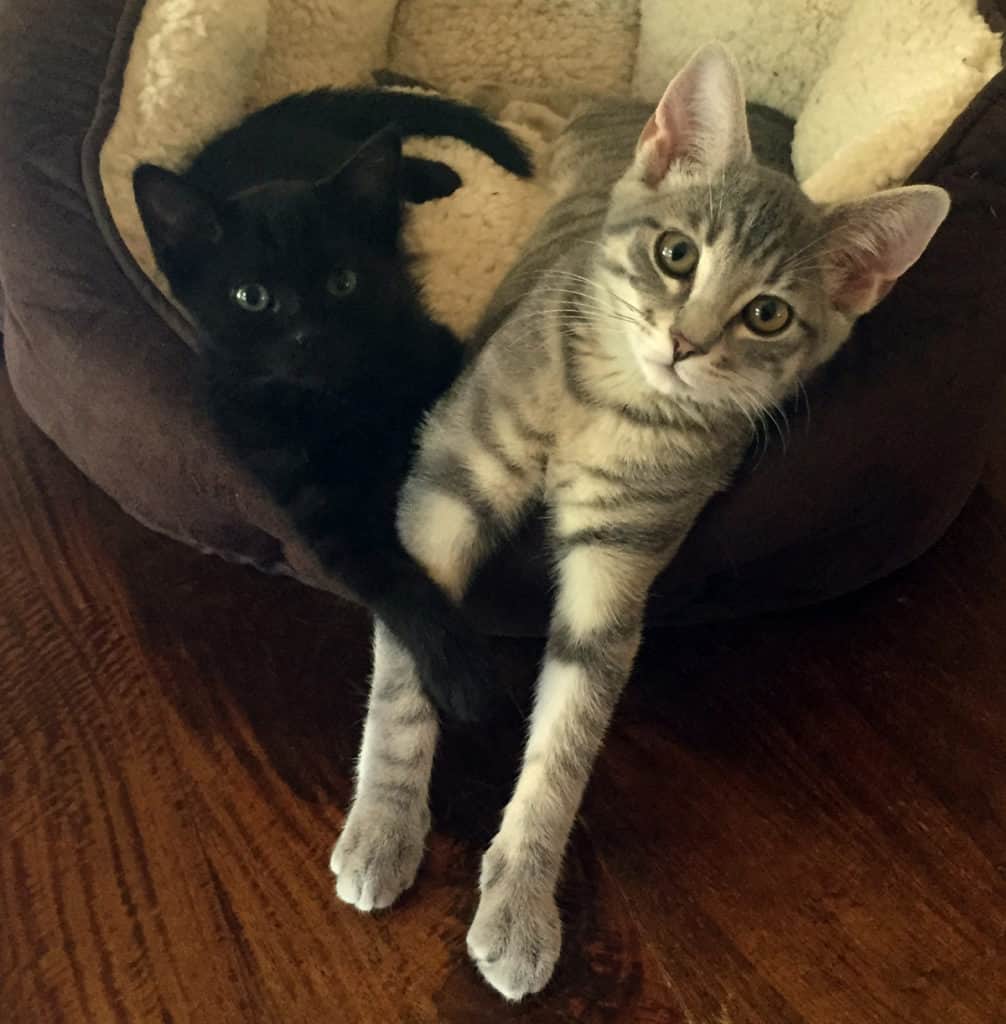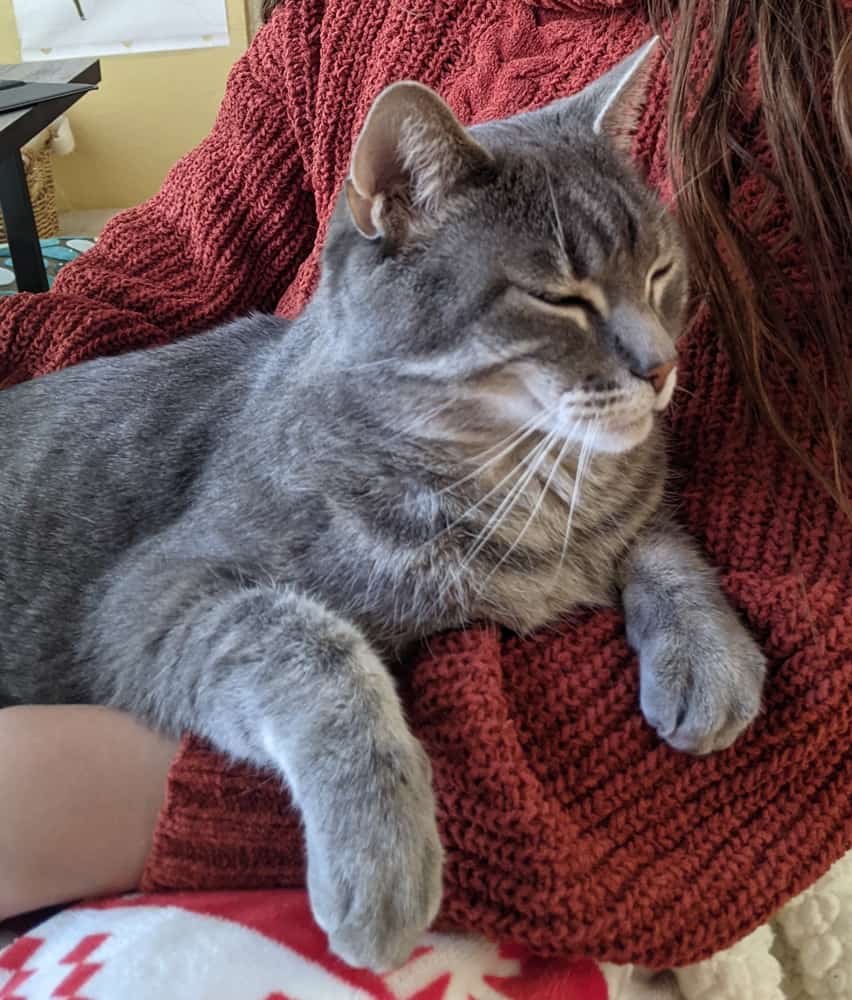By: Ineke van Herwijnen, Utrecht University and Claudia Vinke, Utrecht University
In the words of Sigmund Freud, “time spent with cats is never wasted.” It’s a view that’s shared by the millions of people across the globe who are drawn to the small felines who chose to live with humans thousands of years ago.
With remarkable anatomical, physiological and behavioral similarities to their wild big cat cousins, it’s their independent yet mellow nature (not to mention cuteness) that makes cats such a popular pet, especially in the western world.
But people often underestimate what caring for a cat entails. Here are some of the important things to think about before welcoming a feline into your home.
Cats Need to Be Handled Early in Life
Cats need extensive socialization to ensure they can thrive as a pet and form a close relationship with their humans. Habituation to people and other animals – as well as to different sounds, objects and physical contact – has to be done by the age of seven or eight weeks.

This places a huge responsibility on cat breeders and cat shelters, as kittens must not be taken from their mother until at least eight weeks old (ideally ten to 12). During this time they build up their strength and immunity from feeding on their mother’s milk, and learn to play and use their litter tray under her guidance.
Check that the kitten is still with its mother before you agree to adopt or buy, and that they have reached the appropriate age before you take them home.
Cats Need Training and Stimulation
Cats are independent animals and like to do what they want, when they want. So, you will need to teach them not to jump up onto kitchen surfaces and any other places where they might not be welcome. This is best done when they are young but adult cats can also be trained to some degree too. If you invest the time, you will make your own life easier and your cat’s life happier.
Generally speaking most cats are perfectly content in their own company for several hours a day. But just as with dogs there are some cats who suffer from separation-related anxiety, which can lead to behaviours such as inappropriate urination or an unusual level of vocalisation.

If you are going to be away for long periods of time every day then you will need to make sure they have stimulation. You might consider getting two cats from the same litter, rather than one. Or a cat flap. Or maybe even a dog. Cats and dogs can form close bonds, but you’ll need to be careful about how you introduce your cat to a new canine friend – here also, socialisation at an early age is key.
Nutritional and Medical Needs of Cats
Cats are supreme and opportunistic hunters, which can lead to pressure on their prey species, as well as on you as an owner to prevent such killings.
Be prepared to put some effort into finding a cat food which meets their approval as cats can be very picky eaters. You may even want to consider the type of bowl you feed them from as cats sometimes suffer from whisker stress.

You will need to have them microchipped at a young age and vaccinated annually – and the choice and optimal time to neuter will require some thinking through.
A Suitable Environment
Be sure that you can provide a living environment that suits your cat’s character.
Cats are considered a semi-solitary animal. They can benefit from being adopted with a same-sex animal from the same litter. But if you already have an older cat that is used to a quiet life, you may cause considerable upset by adopting a new little kitten or bringing in another adult cat.
Cats are highly agile and live three dimensionally, which means that they like to sit in high places, jump and climb.
Cats also inhabit an olfactory world, which may come with a need to encounter interesting smells. Be prepared to adapt your home accordingly, as these are important behavioural needs and they cannot be persuaded not to do them.
To prevent your sofa from becoming the scratch pole, you’ll probably want to provide your cat with scratching poles. Make sure that they are long enough to allow a full body stretch, and placed at central positions in your home.

Pedigree or rescue
Adopting a cat from a rescue centre can be an incredibly rewarding experience – and can also make it easier to find a cat that is a perfect match.
Choose the cat for its character, not just its looks. Individuals differ widely in personality and temperament, including friendliness, boldness and likelihood of aggression. It’s important to find the cat or kitten who fits perfectly with you and your living conditions.
If you opt for a pedigree kitten, find a breeder that invests heavily in socializing the kittens. Choose your breed carefully as they have very different characteristics – some are more lazy and mellow, others more vocal and demanding. Be aware though, that some breeds may be prone to hereditary issues that can cause serious health issues.
Last but not least comes the fun part of deciding what to call your new kitten (an older rescue cat will probably have a name already). Cats learn their name very quickly – just make sure you choose something you’re happy to shout out loud.
About the Authors
Ineke van Herwijnen, Junior Assistant Professor in Animal Science and Society, Utrecht University and Claudia Vinke, Assistant Professor in Behavioural Biology, Utrecht University
This article is republished from The Conversation under a Creative Commons license. Read the original article.






